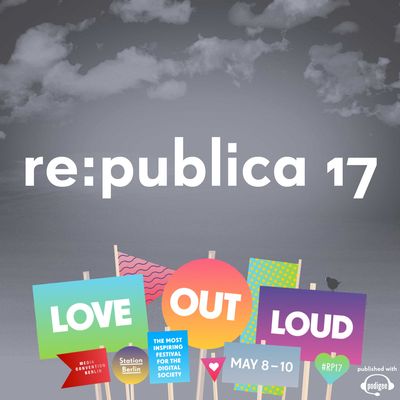re:publica is one of the largest and most exciting conferences about digital culture in the world. Since its foundation in 2007, it has grown from a cozy blogger meeting with 700 participants into a wide-ranging “society conference”, with 8.000 visitors at the anniversary edition re:publica TEN. Representatives of digital culture share their knowledge and decision-making tools, and discuss the future of the information society. Here they can mingle with activists, scientists, hackers, entrepreneurs, NGOs, journalists, social media and marketing experts, and many others. This fosters innovation and creates synergies between net politics, online marketing, network technology, digital society, and (pop) culture. What is more, around 46 percent of re:publica speakers are female – far more than at many other similar events.
https://republica17.network.podigee.io/
episode 50: Disrupting Organizations: Decentralized Autonomous Organizations on the Blockchain (en)
Blockchain is the driving force of the next generation Internet, also referred to as the Decentralized Web. It allows us to decentralise trust. Smart contracts on the Blockchain radically reducing transaction costs creating the basis for a P2P society, allowing for new forms of organisational structures that were not feasible before. What is the state of that technology and what are the pitfalls and challenges of Blockchain based DAOs (Decentralized Autonomous Organizations)?
- Shermin Voshmgir
The promise of blockchain has been to challenge centralized, top-down decision-making through radical transparency and auto enforceable code. Smart contracts on the blockchain disintermediate transactions and radically reduce transactions costs and allowing for new forms of decentralized organizational structures that were not feasible before. The highes form of such a smart contract are DAOs (Decentraized Autonomous Organizations) or DVBNs (Decentralied Borderless Virtual Nations). The claim: Money without banks. Companies without managers. Countries without politicians. But how feasible are those claims and what are the potential challenges and pitfalls? What can we learn from early usecases like Bitcoin, TheDao and Ethereum?
